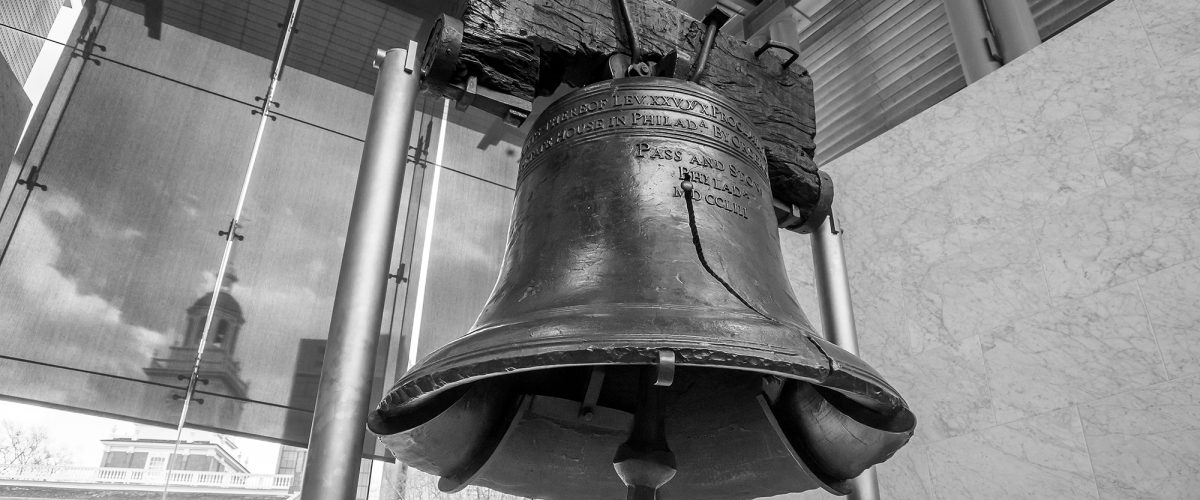Religious liberty, the freedom to practice one’s faith without intimidation or persecution, is a cornerstone of democratic societies around the world. Our Baptists ancestors were among the many who contended for this liberty for people of all faiths or no faith.
The First Amendment to the Constitution of the United States confirms that “Congress shall make no law respecting an establishment of religion, or prohibiting the free exercise thereof; or abridging the freedom of speech, or of the press; or the right of the people peaceably to assemble, and to petition the government for a redress of grievances.”

Barry Howard
Religious freedom stands as a beacon of individual and collective rights, fostering diversity, tolerance and the flourishing of vibrant communities. Here are seven reasons I believe religious liberty is of paramount importance in an ever-changing world:
- Ensures freedom of worship: Religious liberty guarantees the freedom to practice one’s faith openly, both individually and collectively. It encompasses the freedom to worship, assemble for religious purposes and engage in religious rituals and observances. Whether it is gathering for worship services, participating in religious ceremonies or contributing to religious organizations, individuals must have the freedom to express their faith in a manner consistent with their beliefs. This liberty is essential for the spiritual well-being and growth of individuals and communities.
- Safeguards freedom of conscience: Religious liberty protects freedom of conscience, recognizing that true faith is a matter of sincere conviction. One of our historic Baptist principles involves the “soul competency of the individual.” Religious liberty makes certain that individuals are free to explore, question and embrace their spiritual beliefs without fear of retribution or societal pressure. This freedom of conscience extends beyond religious beliefs to encompass moral and ethical convictions as well.
- Welcomes pluralism and diversity: Religious liberty celebrates the richness of human diversity and supports the coexistence of various faith traditions. It creates an environment where individuals can freely express their religious convictions, contributing to a vibrant tapestry of cultural and spiritual heritage. Pluralism enriches societies, fostering mutual respect, understanding and social cohesion.
- Protects against persecution and discrimination: Religious liberty serves as a safeguard against discrimination, ensuring no individual or group faces prejudice based on their religious beliefs. It upholds the principle of equal treatment under the law, promoting a just and inclusive society. Thomas Paine cautioned: “Persecution is not an original feature in any religion; but it is always the strongly marked feature of all religions established by law. By protecting against discrimination, religious liberty fosters social justice and equality for all.”
- Promotes social justice: Religious liberty plays a vital role in promoting social justice and defending the rights of marginalized and vulnerable populations. It empowers individuals and religious organizations to advocate for justice, speak out against oppression and provide resources to the underserved. Spiritual communities play an active role in addressing social issues, including poverty, inequality and human rights abuses. By protecting religious liberty, we empower individuals and religious organizations to fulfill their calling to serve and work for the common good.
- Inspires moral and ethical living: Religious liberty provides individuals with the freedom to follow moral and ethical frameworks guided by their faith. For example, teachings like those of Jesus shape personal conduct, inspire acts of kindness and promote values such as justice, forgiveness and love. By allowing individuals to live out their values, religious liberty encourages the development of a cohesive and compassionate society.
- Safeguards against extremism: History is filled with instances of religious wars and conflicts that led to division and violence. Religious liberty acts as a safeguard against extremism and radicalization. When individuals are free to practice their faith peacefully, they are less likely to resort to violence in the name of religion. Religious liberty, coupled with robust interfaith dialogue, promotes understanding and unity, countering the inciting forces of contempt and hatred.
Baptists historically have championed religious freedom for all religious groups, believing if one group loses religious freedom, we all lose religious freedom. George W. Truett emphasized: “Baptists have one consistent record concerning liberty throughout all their long and eventful history. They have never been a party to oppression of conscience. They have forever been the unwavering champions of liberty, both religious and civil.”
Religious freedom is a basic right that respects autonomy, celebrates diversity and encourages the pursuit of “liberty and justice for all.” As we champion religious liberty, we affirm the importance of respecting and protecting the rights of every individual to practice their faith freely, contributing to a more inclusive, compassionate and harmonious world.
As citizens of these United States, we enjoy more comprehensive freedoms than any other nation on earth. Let us remember that with great freedom comes great responsibility.
Barry Howard serves as pastor at the Church at Wieuca in North Atlanta. He also serves as a leadership coach and columnist for the Center for Healthy Churches. He and his wife, Amanda, reside in Brookhaven, Ga.


